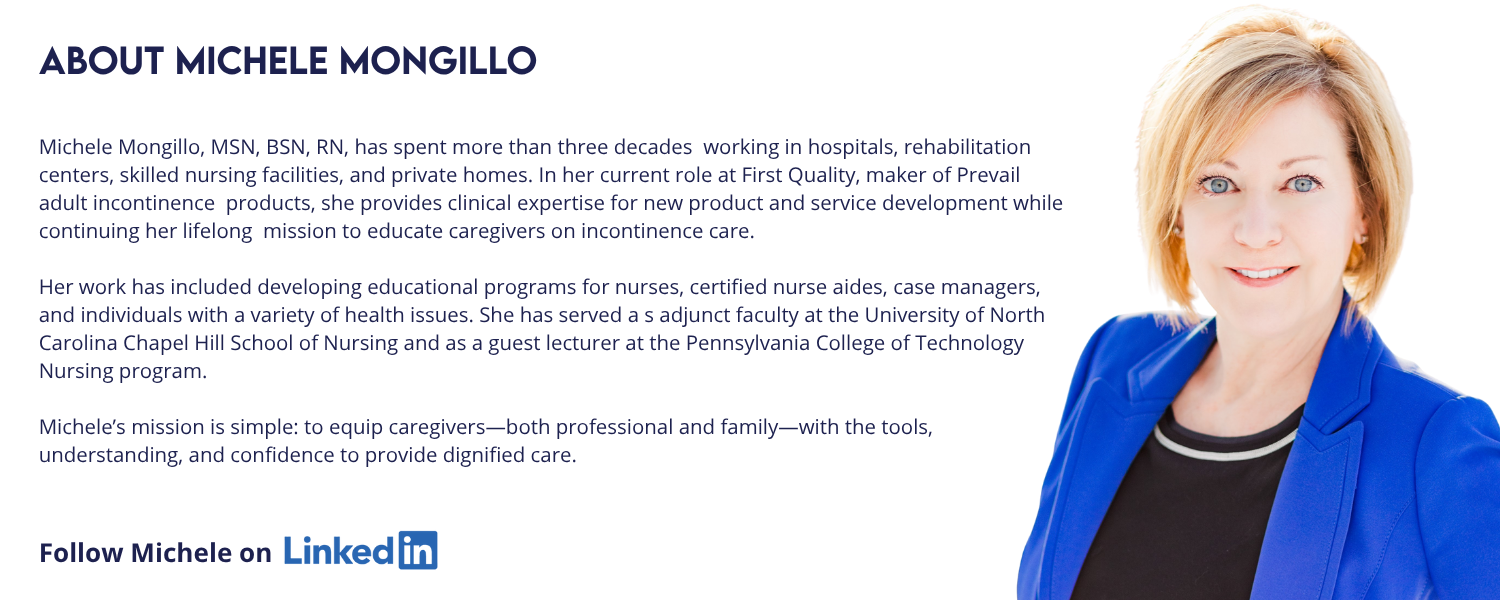Designing Incontinence Products:
Why Clinical Experience Matters
A teenager with a spinal cord injury. A resident in a long-term care facility whose memory is fading. A woman struggling to care for her ill husband at home. These are all people I have gotten to know in my career as a nurse, nursing educator and clinical director. They are also people I have thought about over the past 20 years when working with the Prevail® product development team on adult incontinence care.
During that time, I was fortunate to have a seat at the table when it comes to product design. That’s because Prevail understands that in order to make the best incontinence products, you must first understand the daily challenges of managing bladder and bowel incontinence. Prevail recognizes that nurses, like those on our highly qualified clinical team, bring valuable experience helping people of all ages live comfortably and with dignity.
Clinical insights help drive innovation
Having a strong clinical point of view helps ensure incontinence products address real needs and improve the lives of the people who use them. For example, Prevail introduced streamlined sizing when we saw staff at skilled nursing facilities struggling to choose the proper sized products for residents.
Clinical insights also led to the launch of our Prevail eNurse™ service, which provides 24/7 consumer support on incontinence-related topics. Years spent working with patients, residents and caregivers gave us a unique perspective on the level of personalized support needed for incontinence care.
Keeping caregivers at the forefront
Prevail Air™ Briefs which provides Prevail's most advanced technology for persistent, heavy leakage which locks away wetness and allows air, heat and humidity to escape.
More often than not, it’s caregivers who are the ones helping others use incontinence products. Caring for someone with incontinence is extremely personal, whether that care is happening at home or in a professional care facility. Throughout my career, I’ve seen the difference it makes when caregivers feel confident in their ability to provide this kind of intimate care. I’ve also seen the difference it makes when people feel comfortable talking about incontinence more openly with their loved ones and healthcare providers.
This is what inspired me to write my book, “Caring with Dignity: A Caregiver’s Guide to Incontinence.” I poured my clinical experience into the book, creating a practical, easy-to-use guide based on real-life examples. While the book is aimed at family caregivers, it’s also full of information relevant to professional caregivers or those managing incontinence independently.
At the end of the day, a nurse’s viewpoint is not only clinical; it’s human. I believe this has helped set Prevail apart in the industry, and I hope every caregiver who reads this book can see themselves in its pages.

ASK A PREVAIL ENURSE™
Contact Customer Service
Our team of experts is ready to help.

